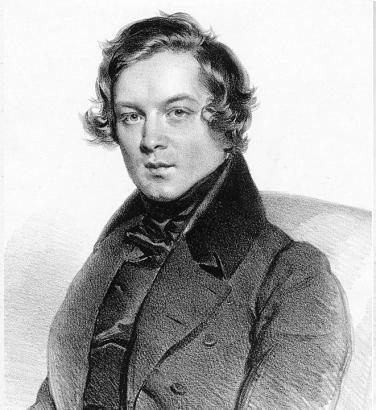
Schumann's symphonies: a case of belated recognition
20 Oct 2022
News Story
Schumann has long been saddled with the reputation of having been a disappointing symphonist. Conventional wisdom would have it that he wrote beautiful melodies, but failed to develop them into a coherent symphonic argument, on top of which his orchestration was often dismissed as dense and uninspired. It is only very recently that this view has been challenged, and while we are still far from a proper overhaul, some headway has been made towards recognising Schumann as a symphonic composer.
By contrast, Brahms is supposed to have been able to work wonders with less inspired ideas, and his symphonies saw him hailed as the true successor to Beethoven. Effectively dismissing the many symphonies composed between the Choral symphony and Brahms' first, the (German-dominated) musical establishment clearly knew which direction they wanted the genre to go in, and Schumann - whose gift for melody and lightness of touch placed him more in line with Mendelssohn than Beethoven - clearly didn't fit their criteria.
Schumann's bland orchestration does little to avert the very real danger of ultimate tedium.
As for the argument that Schumann’s orchestration is lacking, the enduring popularity of his piano and cello concertos (which cannot be due to the merits of their solo parts alone) would suggest otherwise. Rather, it seems to stem from the difficulties that conductors over the years have had in getting to grips with his purely orchestral works, as a result of which they attempted to shift the blame onto the composer himself. Some - Gustav Mahler and George Szell among them - went so far as to reorchestrate the music, and it wasn't until the 1950s that recordings of the original versions first appeared.
It takes a lot to overcome such entrenched prejudice, but with 2014 alone yielding three revelatory recordings of the complete cycle (from the Chamber Orchestra of Europe, Berlin Philharmonic … and the Scottish Chamber Orchestra, under Robin Ticciati), there is good reason to be optimistic about their future.

Robin Ticciati conducts Schumann's symphonies
The full cycle from 2014.
"Articulation is crisp, tempos well chosen and maintained, orchestral balances well managed, and orchestral execution clean, precise, and responsive." (Fanfare)
Related Stories
![]()
Not quite a symphony: the sinfonietta, divertimento and serenade
13 October 2025
Our series on the symphony takes a slight detour to look at those works which don't quite make the grade.![]()
The tortured tale of Schumann's Violin Concerto
24 February 2025
Or, how suppressing a work for 80 years can affect its long-term fortunes.![]()
The oboe concerto
13 January 2025
The oboe: refined, yes, but cheeky or melancholic? Join us as we look at the concertos exploring this instrument's wide-ranging moods.



